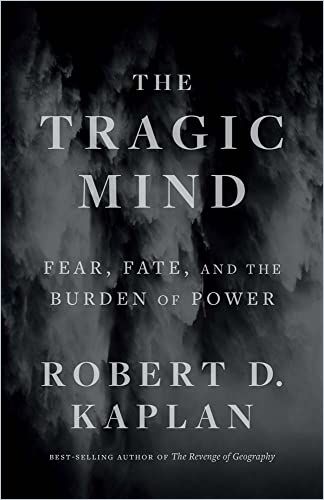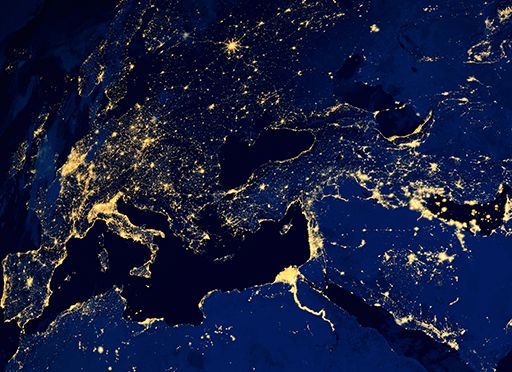Prolific author and geopolitical expert Robert D. Kaplan says ancient literature can inspire you to question your dangerous optimism.

Avoid Hubris
Forget The Power of Positive Thinking — for a more thoughtful perspective, read the writings of Aeschylus, Sophocles, Euripides, and Shakespeare, says Robert D. Kaplan, the Robert Strausz-Hupe Chair in Geopolitics at the Foreign Policy Research Institute.
Tragic Thinking
When deciding whether to wage war, politicians should take a cue from the Greek tragedies and ponder all that could go wrong. Tragic thinking is not hopeless negativism. Literature, and especially the Greek tragedies and Shakespearean works such as Hamlet, remind leaders that geopolitics isn’t a science experiment. No one can control the various inputs into something as complex as war. To think tragically shows humility. Russian president Vladimir Putin displayed the opposite of self-awareness when ordering his ill-fated invasion of Ukraine. No subordinate would speak honestly to Putin, and no one could inject reality into his plan.
Men and women are not particles in a test tube whose behavior follows the laws of chemistry and physics. There is no hard, predictive science of international politics.
Robert D. Kaplan
By contrast, Abraham Lincoln and Franklin Roosevelt connected with tragic thinking. They understood that a tragic mindset enables the letting go of illusion, and that leads to better decision making. Lincoln recognized that, to end the Civil War, he had to break the will of Southern civilians. Roosevelt understood that he had to ally with one madman, Josef Stalin, to defeat another, Adolf Hitler.
While civilization is the culmination of our struggle to realize our humanity and to rid ourselves of our propensity for violence and the iron grip of fate, we can only achieve this by never losing sight of our origins.
Robert D. Kaplan
Characters in the great tragedies don’t behave logically or honorably. In Fyodor Dostoevsky’s Crime and Punishment, for example, both the protagonist and lesser figures act rashly and capriciously. In one of Shakespeare’s earliest plays, Titus Andronicus, honor is closely allied with cruelty, and bravery with brutality.
Greek tragedies offer a balance between unbridled passion and dispassionate analysis. Philosopher Friedrich Nietzsche interpreted the tragedies as a battle between pessimism and optimism. Optimism unchecked by tragic thinking leads to serious missteps. For example, many leaders expected that the close of the Cold War would prompt all nations to embrace democracy and capitalism. They believed that increased trade with China would push Beijing to mirror the mores of Western-style democracies. They trusted that the neoliberal economic prescription of austerity would allow Russia to emerge from the 1990s as just another free market economy. A tragic thinker would have weighed these optimistic outlooks with a dollup of pessimistic thought — such as the decidedly harsh truth that strongmen don’t give up power. When outside forces pry them from power, the ensuing chaos, whether in Iraq or Sierra Leone, unleashes savagery.
Order
Only social order keeps humans’ baser, animalistic instincts in check. But too much order can lead to violence, especially in authoritarian regimes. A regime that imposes order with brutality will face rebellion. Existentialist Albert Camus wrote that tyranny is preferable to anarchy. This played out during the Arab Spring, when citizens challenged Libyan and Syrian tyrants. But the rebels ousting the despots lacked a well-developed plan for what came next. Even more hellish regimes arose.
Shakespeare’s Julius Caesar was assassinated because he had become too dictatorial. Caesar’s fall led not to democracy but to disorder. His murder was met with anarchy, more killings, and ultimately, another dictatorship. This pattern has repeated throughout history in life and literature. In Greek tragedy, the standard plot followed a formula: Order is destroyed, anarchy erupts, and order is restored.
Donald Trump’s win in 2016 shows that, even in modern times, the human urge to destroy existing traditions remains as strong as ever. Yet most people living in the United States today have little concept of just how much safety they enjoy. An ordered society is their norm. Unlike past generations, modern citizens of the First World tend to be rather glib about the idea of tearing down longstanding institutions. They lack a healthy fear of the tumult that too often comes in the wake of the ending of old hierarchies, and they don’t fully understand the immense work involved in rebuilding a fallen society. In the developed world, only a scant few — soldiers, refugees, war correspondents — have seen chaos up close. Today’s literature stems from the comfortable existences of writers who have enjoyed orderly, risk-free lives, so they can turn their attention to themes such as love, sex, work, and class tensions.
Humility
In ancient Greece, the characters in tragedies and mythology lived in constant fear of angering the gods and earning gruesome punishments. To behave with too much confidence or to act with too little awareness of your own limits was to tempt drastic consequences.
In Greek literature, tragedy flows from human strength: When individuals exhibit fortitude and dexterity, the gods become jealous and sabotage them. In Shakespeare, human weakness drives tragedy. In the modern world, character and judgment often beat expertise. President George W. Bush counted Dick Cheney, Donald Rumsfeld, and Paul Wolfowitz as his advisers, a triumvirate with sparkling résumés. And yet their poor decisions regarding the invasions of Afghanistan and Iraq after September 11, 2001, only caused more tragedy.
To make sound decisions, the Greeks and Shakespeare espoused fear as a regulator. Healthy respect for bad outcomes keeps individuals and their ambitions in check. Courage by itself begets catastrophe, and fear by itself breeds inaction.
Only those who have never experienced war have the luxury of advocating it with a clean conscience.
Robert D. Kaplan
Nations should go to war only when absolutely necessary. Today’s all-volunteer US armed forces means few Americans experience war. The US’s tragic failures in Iraq and Afghanistan warn against future conflicts.
Review
Most citizens of the First World have little experience with societal strife or struggle, Kaplan writes, and that yields a uniquely destructive form of postmodern hubris, the sin the ancient gods most avidly punished. Kaplan argues that leaders and citizens should read the tragedies of yore to become familiar with tragic thinking — a mindset that lets you analyze your sunny predictions and leaven your optimism with a healthy respect for all that could go wrong. Reading the Greeks and Shakespeare will grant you greater insight into Kaplan’s ideas, but his thoughts and arguments remain nonetheless powerful and convincing.







